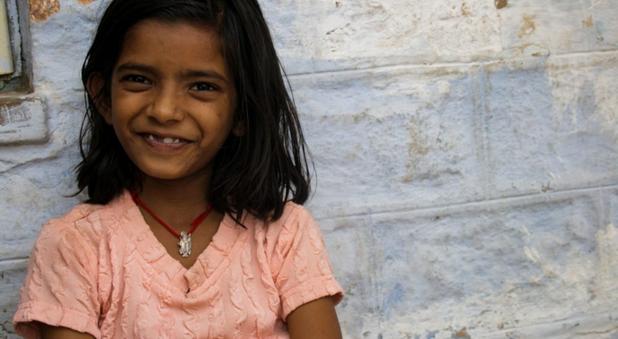The link between the Subcontinent and Sydney Anglicans is longstanding. Reginald Heber, who wrote the great hymn “Holy, Holy, Holy”, was appointed in 1823 as Bishop of Calcutta ––which included the fledgling colony in Australia.
In more recent times, leaders of Subcontinental descent have taken their place in Sydney Anglican churches, including our present Archbishop. But perhaps the most significant links are yet to be forged, as the Australia-India Economic Co-operation and Trade Agreement comes into effect over the coming months.
Local Mission Field Expanding
The agreement will see a significant increase in the temporary migration of Indian citizens to Australian shores, further expanding a local mission field for churches.
“India has more than a billion people who are impressively religious to no avail,” says the Rev Ben George, who is of Indian descent and is the new chairman of the Subcontinental Evangelism Group at Evangelism and New Churches.
“The brutality of the myriad of religious practices [in India] put the impetus on weak and vulnerable people to please vengeful gods. Many in India desperately need the gospel.
"God has presented us with an opportunity to minister to Indian brothers and sisters as they flood to Australia.”
Mr George has joined colleagues the Rev Clive Buultjens from Merrylands, Jeri Jones from St James’, Croydon and the former rector of Liverpool South, the Rev Manoj Chacko, to appeal to Sydney Anglicans to prepare for the mission.
“Post-graduate university students and professional workers alike will begin moving into major cities in Australia,” Mr George says. “This will have an impact on the landscape of suburbs already teeming with Subcontinental peoples – not to mention the nature of international student intake.
“With the huge influx of educated, young professionals from India arriving on Australian shores, are we ready?”
The nations of India, Pakistan, Nepal, Bhutan, Bangladesh, Sri Lanka and the Maldives make up what is broadly referred to as “the Subcontinent”. But, as Mr George points out, people’s religious backgrounds are varied.
“Are we ready to gather alongside our Hindu, Buddhist, Sikh, Muslim and Jain brothers and sisters as they walk on a journey to know Christ and all that he has done for them? My experience has been that Indian friends have loved the opportunity to open up the Scriptures and hear about Jesus, who has such authority over the spiritual world and yet loves the littlest and most vulnerable.
“It is often a slow process of peeling back the layers of opposition to Christians – let alone the Christian message – yet my experience is that Jesus, as he is revealed in Scripture, is irresistible for those thirsting after a genuine relationship with God.”
All Sydney should get ready
Mr George, assistant minister at Auburn & Newington Anglican Churches, believes it is not just Western Sydney churches that will be affected.
“I wager that there will be very few geographical areas that won’t be impacted by the flood of Indian people,” he says. “We ought to prayerfully ready ourselves with hearts willing to learn and resources to expend.”
Readiness will include the willingness to invest significant relational capital befriending young families around food and fellowship and through acts of kindness.
“These acts of kindness are almost always relational, as so many Indian friends leave their familial comforts in order to brave new opportunities in Australia,” Mr George says. “Fostering genuine friendship and companionship becomes significant in building rapport as Christians in a Western country – especially with some of the current anti-Western sentiment propagated by Hindu nationalists in India.
“Even more significant is that the genuineness of our relationships speaks volumes as to our motives. It is not that proselytisation is a matter of boasting, but that we love and care for our Indian brethren so much as to share the message of everlasting life.”
As well as personal relationships, he says the missional task will challenge the corporate life of the church.
“We ought to creatively consider how we engage with peoples with a polytheistic worldview and an honour-shame culture to provide avenues to share the love of Christ.
“Might we challenge our seating arrangements, styles, sensibilities, understanding of fellowship over food during morning tea, and all else that might hinder our Indian brothers and sisters from seeing ‘God really among [us]’ as we gather at church?”






















